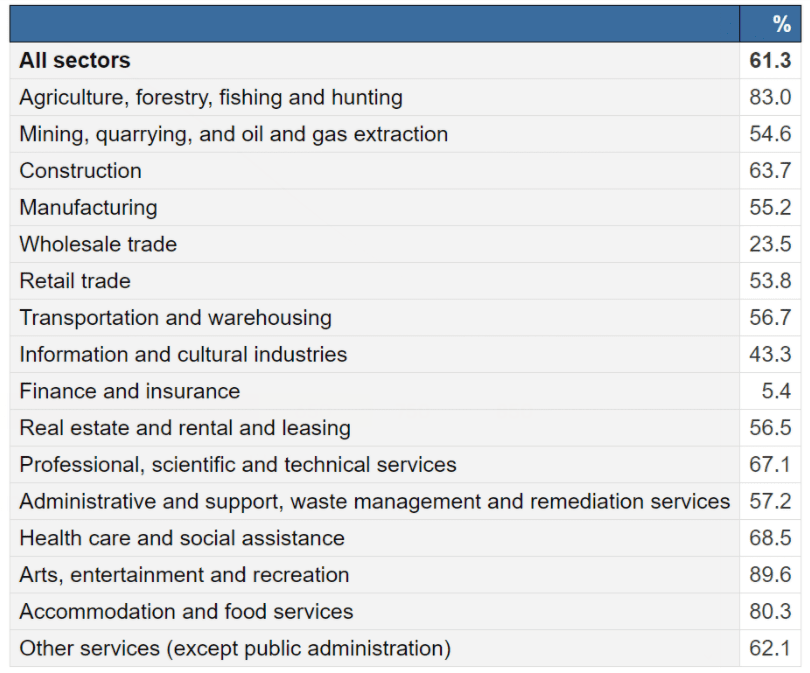What was supposed to be a challenging 2020 for Canadian real estate has turned into a record-breaking year, as home sales and prices soundly defied forecasts of a prolonged, pandemic-induced downtrend. But not every segment of the housing market has benefited, as shifts in labour force dynamics drove more people away from big cities and towards the suburbs. Prices have mirrored that decisive shift. It remains to be seen whether real estate investing in Canada will also shift as a result.
September was another record-breaking month for Canada’s housing market, as national home sales jumped 0.9% to new highs. However, unlike in previous months, only 60% of local markets reported gains, according to the Canadian Real Estate Association.
The Greater Toronto Area was one region that witnessed a decline in prices, largely due to weakening demand for condominiums in the city centre. Meanwhile, on the outskirts of Toronto, demand for single-family homes continues to surge. Mortgage companies across Canada are closely monitoring these trends, as are private lenders.
Lockdowns and the Changing Nature of Work
Shifting consumer behaviours in the wake of Covid-19 have spilled over into the housing market, as more people prioritize space over convenience. Canada’s economy lost over 3 million jobs in March and April as government lockdown orders forced people to stay indoors. While employers have rehired most of their workers, a large segment of the knowledge economy has shifted permanently or semi-permanently to remote work.
A survey from Statistics Canada revealed that one-quarter of Canadian businesses expect at least 10% of their workforce will continue to work remotely following the pandemic. These figures are highest in the information and cultural industries (47%) and professional, scientific, and technical services industries (44.5%).
Percentage of businesses reporting COVID-19-related layoffs, by sector

This chart highlights the percentage of businesses that reported coronavirus-related layoffs amounting to 50% or more of their workforce. While many of those jobs have been recouped, a large segment of the knowledge economy continues to work remotely. | Source: Statistics Canada
More people working from home means less demand for downtown condos and other high-density urban dwellings. In Toronto, for example, this trend has been pervasive since the start of the pandemic.
According to a Ryerson University report analyzing Toronto housing market trends, condos are the clear outlier in an otherwise healthy market.
“While prices are still rising in the condo market, they could change direction if listings continue to rise as they have been in the last seven months,” said report authors Diana Petramala and Victoria Colantonio.
The Immigration Factor
Immigration plays a crucial role in major urban real estate markets like Toronto and Vancouver. The decline in new permanent residents was substantial enough to impact the condo market, both in terms of sales and rent.
With immigration “unlikely to rebound soon,” condo listings in Toronto, Montreal and Vancouver have risen sharply since the pandemic began, according to RBC senior economist Robert Hogue. In a recent research note, Hogue said the number of new permanent residents to Canada fell 64% in the second quarter as more non-permanent residents left the country than entered it. Net migration plunged 94% as a result.
In addition to immigration issues, Hogue identified “new, stricter regulations in Toronto” as one of the reasons why condo investors are looking to sell. At the same time, new condo completions in Toronto and Vancouver are bringing more listings to the market. With excess supplies, values are expected to decline in the short term.
The silver lining for condo dwellers and mortgage investors is that this trend is unlikely to extend beyond the immediate term. The federal government plans to dramatically increase immigration once the pandemic is over. Ottawa is targeting 1.2 million newcomers between 2021 and 2023–an average of 400,000 per year over the next three years.
Prime Minister Justin Trudeau says Canada is hoping to distribute a Covid-19 vaccine by early 2021–a move that could dramatically reduce the impact of the pandemic and contribute to the post-pandemic recovery. Combined with the easing of shelter-in-place orders and resumption of domestic travel, Canada’s economy appears to be on a solid path to recovery. That bodes well for large urban real estate markets like Toronto, Vancouver, and Montreal.
Canada’s Housing Market Remains on Solid Footing—For the Most Part
The fallout from Covid-19 has had a dramatic impact on employment, consumer behaviour and the overall economy. Housing has been one of the more resilient sectors of the economy, with demand for single-family homes still growing. Condominiums appear to be the first real estate casualty of the work-from-home trend. It remains to be seen whether demand will return to pre-pandemic levels once baseline immigration levels are reestablished.
CMI will continue to monitor trends in mortgage investment banking.
